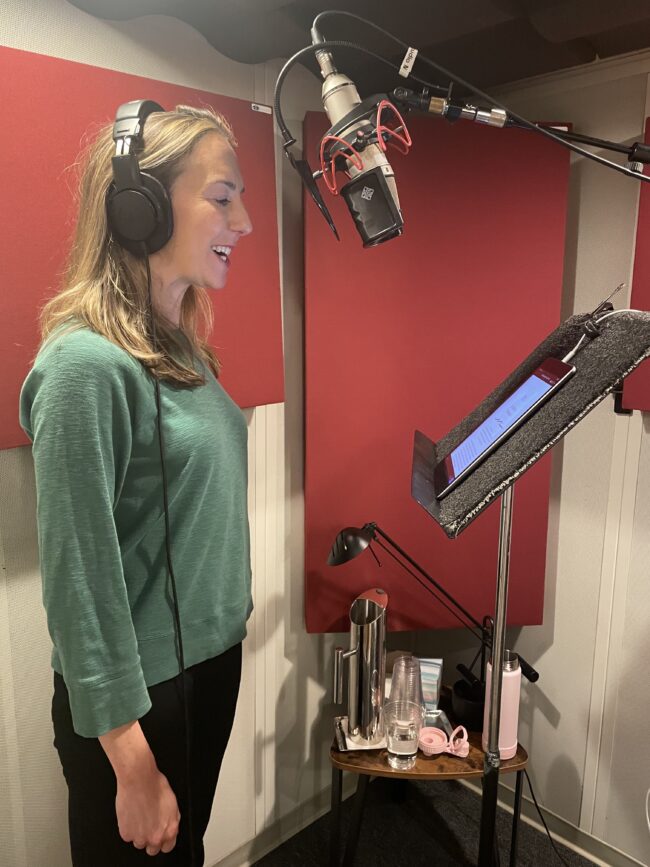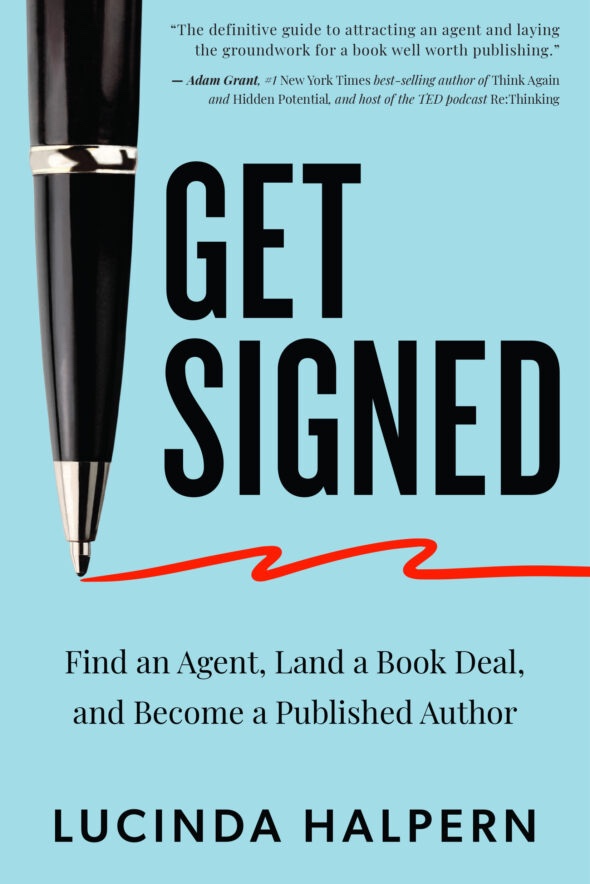Search
8 Lessons I Learned Writing and Publishing a Book for the First Time
Get Signed: Find a Book Deal, Land an Agent, and Become a Published Author (Hay House; February 2024) is a playbook for aspiring authors looking to find an agent and land a book deal. But what happens after that? Author of Get Signed, and Lucinda Literary’s President & Founder, Lucinda Halpern imparts a few important first-time book publishing lessons she learned first-hand and discover tips on building your reader avatar, perfecting your voice, creating a cover inspiration deck, and navigating the publishing journey like a pro. Essential reading for aspiring authors!
First Time Book Publishing Lesson #1: It all begins with your reader avatar.
Greg Alexander’s The Boutique was one of the first business books I had read that introduced me to the idea of a customer avatar. I re-fashioned this idea for Get Signed, and spent hours scheming and refining a reader avatar based on the students I had met in our classes. In other words, I thought critically about how I could create a book that spoke to them, in the exact language I had heard. As part of my market research, I had to familiarize myself with the content they consume—and would pay for.
Here’s my resource to help you build your own reader avatar.
First Time Book Publishing Lesson #2: Find the right collaborator.
I always thought I was a strong writer. I wasn’t. At least, my writing wasn’t strong enough to write a long-form practical self-help book. So, I engaged Liz Morrow to help me as a thought and editorial partner. We had so many rich debates on Zoom and over Voxer. When I read the book now, I see all of those creative struggles—the ways in which we found solutions, the areas in which we couldn’t.
If you work best collaboratively, a partner who is as dedicated and brilliant as Liz is essential. Without a Liz in your life, you cannot just rely on your spouse or editor to be in the trenches with you, while also offering a well-rounded perspective. (Lucinda Literary represents a number of talented collaborators who can help authors through ghostwriting, outside editing, or coaching.)
First Time Book Publishing Lesson #3: Voice is best, better than the rest.
When I consider the singular reason an editor will acquire a project (or pass on it), it comes down to voice.
When I sat down to write, my English literature education, as well as the voice of my mother (the best editor I know), took over. But my actual editor at Hay House had to lovingly whack me around a few times before I got the point: “Don’t strive for grammatical perfection,” she said. “We want your voice. Just as you would say things, not as you would write them.”
I tell my authors this all the time, even though I had such trouble doing it myself. Perfection is so often the enemy of the good. I found that the more brief and spare and essential I was with my prose, the more it sang.
After reading On Writing Well, I cut, and I cut, and I cut ruthlessly. And now I apply this to all of my writing.
Lesson #4: Seek early feedback, even before you think your manuscript is “ready.”
Here’s another way in which perfection goes against the grain of the good. We neglect those critical readers who can tell us what’s working well and what isn’t before we’re too far along. Getting a sense of this early, no matter how self-conscious you are, can help you determine the structure of your book, avoid repetitive or trite concepts, and save you from negative Amazon reviews later.
Here’s an example of the survey I shared and used for my own reader committee, a small, hand-picked list of editors, ghostwriters, authors, and most important, the students and aspiring authors I teach, who comprise the bulk of the book’s audience.
Lesson #5: Don’t fall into the email trap.
Editors and agents are oversubscribed. Most new authors (guilty!) have questions arise night and day, and we are often ahead of ourselves—asking who to approach for blurbs before we’ve even delivered a manuscript. Too many questions and emails will drain your editor or publicist’s attention. But these questions do deserve answers—at the right time. To avoid inflicting death by a thousand emails on your editor, consider making an ongoing list of questions in a Google doc, organized by answered vs. unanswered to keep track. Consider scheduling a 30 minute Q&A phone call with an agenda sent beforehand or one kept on hand. Or send a Loom that walks an editor through particular questions.
I can’t vouch every editor will take to this… but it worked for me.
First Time Book Publishing Lesson #6: Create a cover inspiration deck.
After a decade of having teary “I hate my cover!” conversations with authors, I now recommend that my authors get out in front of the inevitable early. Once your manuscript is in, create a deck, or even just a document, to act as a vision board for how you wish your cover to appear. Two points to highlight here:
1) Be really specific in providing instruction or feedback as to what you like or don’t like, and be able to name why.
2) Don’t choose book covers in genres or with audiences that are entirely different to yours. A beautifully packaged novel from Knopf (they do the best jackets!) is likely not the way your self-help book should appear.
You can find an example in the deck I created, here.
First Time Book Publishing Lesson #7: Don’t tackle everything at once!
So many of us are busy with careers, families, and now, a book! It’s tempting to think we can juggle everything at once, but at the end of the day, it’s best to space yourself out. For example, I incorporated “Offline Wednesdays” into my schedule in order to dedicate one entire workday out of the week to just my upcoming book.
Similarly, keep a schedule of action items that should be accomplished in a linear, time-blocked way (as close to being anal-retentive as you can get), so that you’re not scattered and rushed during launch time. When I got my book deal, I divided up the objectives quarterly—i.e. “blurbs,” “publicity outreach,” and “presales.”
Lesson #8: Read the book aloud before you deliver the final draft.
I loved reading the audiobook for Get Signed. It was challenging in the best possible way. All that diaphragm! But ready for my big mistake? I hadn’t read the manuscript aloud before I turned it into my editor. I had been telling my authors to do so but hadn’t found the time myself and was frankly sick of re-reading that manuscript! As a result, there were repeated or tongue-tripping words and a few repetitive concepts I could have easily avoided. So, there you have it, all my First-Time Book Publishing Lessons shared with the world, and I hope you have discovered something from it.
***
No two publishing paths look alike. I’d love to hear some of your own trials and triumphs as you craft and launch your own books. Do you have any first-time book publishing lessons that you would like to share? I’m eager to learn from you, and I hope you’ve discovered something from my own story.

First-Time Book Publishing Lessons
Here’s a snapshot of me recording the audiobook. The best part was re-living the success stories of my authors, students, and reading the query letters that got them signed! You can learn more at getsignedbook.com.
If you’re just starting out, explore our beginner resources on Get Signed







